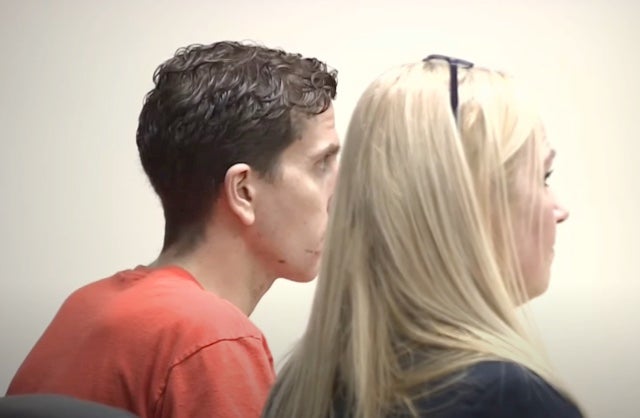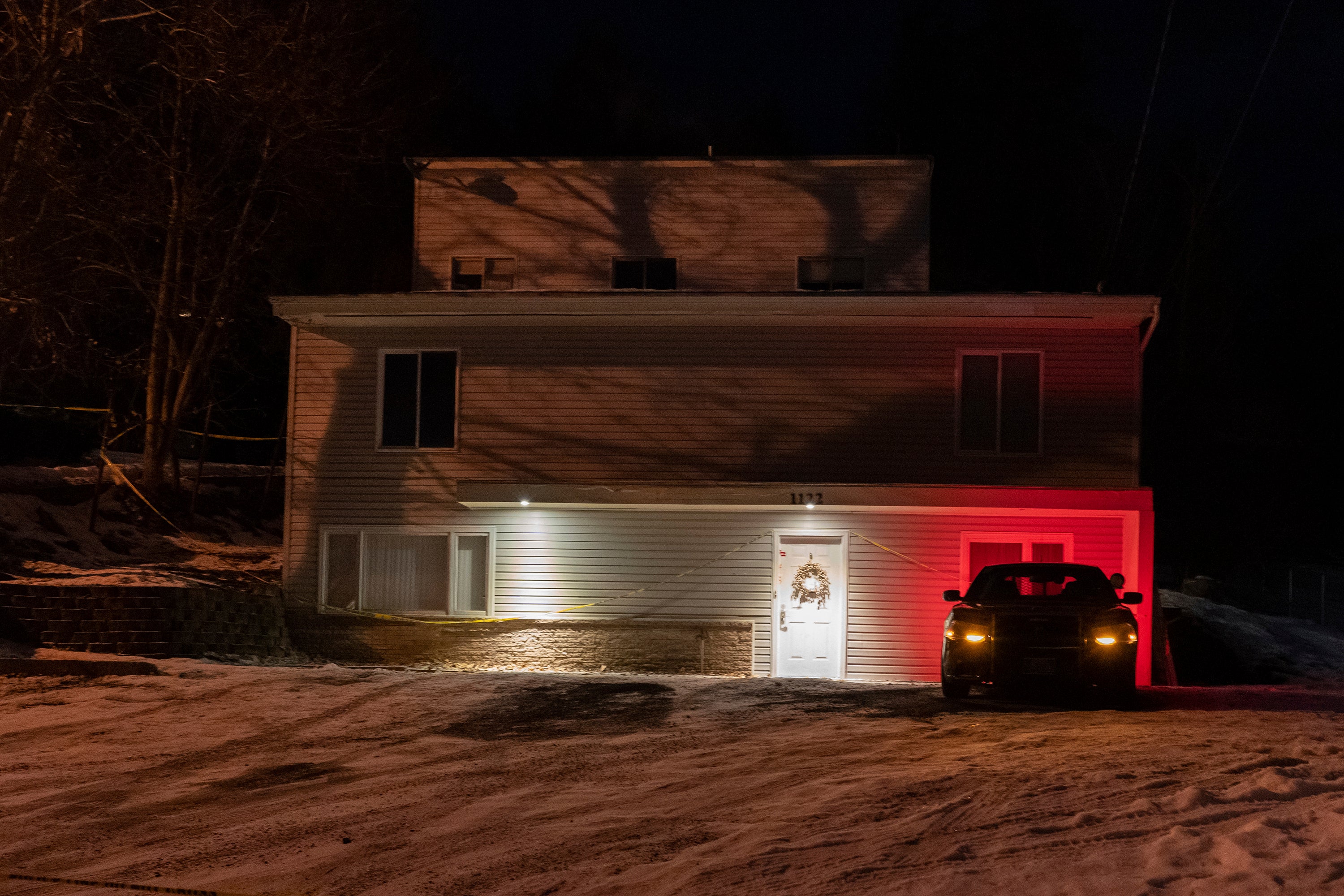New explanation emerges about mystery 911 call alerting police to Idaho student murders
It is possible that the dispatcher assigned the generic label of ‘unconscious person’ to the call while speaking to the students who were panicked by the bloody scene
The 911 call alerting law enforcement to the murders of the four University of Idaho students has long been shrouded in mystery after Moscow Police said that the caller initially reported “an unconscious individual” in the home.
The call was made from the cellphone of one of the two surviving roommates at around 11.58am on 13 November, with the dispatcher speaking to multiple people.
Officers arrived at the home to find a bloody scene, with Kaylee Goncalves, Madison Mogen, Xana Kernodle and Ethan Chapin all dead from multiple stab wounds.
Since then, questions have persisted around why the caller reported an “unconscious individual” when officials described the crime scene as one of the worst they had ever seen.
A potential reason for the mysterious 911 call has now been revealed in Air Mail’s article “The Eyes of a Killer”.
Civilian employees at Whitcom 9-1-1, an agency in Pullman, Washington, handle the 911 calls to the Moscow Police Department as well as several other agencies, according to the report.
The agency is severely understaffed to such an extent that the dispatchers’ guild has previously warned that “our ability to uphold public safety is at risk”.
Under standard protocol, when callers “are agitated” the dispatcher will often assign the call with the generic label of “unconscious person” rather than waste valuable time and resources trying to gather specific details.
In this case, it is possible that the dispatcher assigned the generic label while speaking to the students who were panicked by what they saw and were passing the phone from one to the other.
The explanation comes as many questions remain unanswered about the case that has sent shockwaves through the small college town of Moscow, close to the Washington state border.
Suspected quadruple killer Bryan Kohberger is accused of breaking into the student home in the early hours of 13 November and stabbing the four students to death in a savage knife attack.

The motive for the murders is still unknown and it remains unclear why Mr Kohberger allegedly targeted the victims – or if he even knew them.
An attorney representing Goncalves’ family said that “no connection” had been found between the four students and the suspect.
The victims’ families will now have to wait six more months to get more answers in the case after his next court date was set for June.
Mr Kohberger appeared in Latah County Court on Thursday for his status hearing where he waived his right to a speedy trial.
Dressed in an orange t-shirt and with unexplained cuts on his face, Mr Kohberger spoke only to answer “yes” when asked if he understood his rights to a speedy preliminary hearing within the next 14 days and if he agreed to waive those rights.
Mr Kohberger’s public defender Anne Taylor then requested that his next court date be pushed back until June.
The prosecution agreed to the request and the judge scheduled the preliminary hearing for the week beginning 26 June.
The entire week has been set aside for the hearing – when evidence of the case against Mr Kohberger will be laid out for the first time in court and Mr Kohberger is likely to enter a plea on the charges.
Until then, Mr Kohberger will be held behind bars at Latah County Jail after he was ordered to be held on no bail for a second time.

Mr Kohberger did not enter a plea at Thursday’s hearing – his second appearance in an Idaho court since being extradited from Pennsylvania last week.
However, he is said to be planning to fight against the allegations with Jason LaBar, the attorney who represented in Pennsylvania, saying that Mr Kohberger was “eager to be exonerated”.
He was formally arraigned on four counts of murder and one count of burglary at his first court appearance in Idaho on 5 January.
His latest court appearance coincides with the start of the spring semester at the University of Idaho, with many students returning to campus this week for the first time since the brutal murders.
Several students spoke out about their relief that the suspect is now behind bars, with sophomore Ryder Paslay telling KXLY that he “breathed [a] sigh of relief” when news broke of Mr Kohberger’s arrest back on 30 December.
While Mr Kohberger has so far remained tightlipped about the murders in his court appearances, sources have spoken out to reveal that he made offhand comments about the murders before and after his arrest.
Mr Kohberger’s neighbour, who wished to remain anonymous, told CBS News that Mr Kohberger spoke to him about the quadruple homicide just days on from the 13 November attack.
“He brought it up in conversation,” they said.
“[He] asked if I had heard about the murders, which I did. And then he said, ‘Yeah, seems like they have no leads. Seems like it was a crime of passion.’ At the time of our conversation, it was only a few days after it happened so there wasn’t much details out.”
During his extradition from Pennsylvania to Moscow, he also reportedly made an offhand comment about the murders to officers.
“He did say, ‘It’s really sad what happened to them,’ but he didn’t say anything more. He’s smarter than that,” a law enforcement source told People.
Mr Kohberger seemed “really nervous” during the journey back to Moscow and spoke aloud to himself in an apparent effort to reassure himself, the source added.
“He seemed really nervous. He was narrating to himself everything that was happening,” they said.
“At one point, he was saying something to himself like ‘I’m fine, this is okay.’ Like he was reassuring himself that this whole thing wasn’t awful.”

Some chilling details did come to light about the murders in Mr Kohberger’s affidavit – released last week – with cellphone data suggesting that Mr Kohberger stalked the student home at least 12 times in the run-up to the night of the murders, according to the affidavit.
At the time of the murders, investigators believe Mr Kohberger turned his cellphone off in order to try to avoid detection.
However, cellphone data places him close to the home on King Road at around 9am on 13 November – suggesting that he returned to the scene of the crime just hours after allegedly murdering the four victims at around 4am.
As well as cellphone data, the affidavit reveals that other evidence also led them to arrest Mr Kohberger for the student murders.
Police said that his DNA was found on a knife sheath left behind at the scene by the killer.
A white Hyundai Elantra spotted at the crime scene at the time of the murders was also traced back to the suspect, the affidavit reveals.
One of the victims’ surviving roommates was also able to partially describe the killer to investigators after she came face to face with him in the aftermath of the murders.
Investigators believe the murders unfolded between 4am and 4.25am on 13 November when all four students had returned from nights out.
Two other roommates were also in the student home at the time of the attack but were left unharmed.
At around midday the next day, a 911 call was made from the phone of one of the surviving roommates alerting police to the bloody crime scene.
The affidavit has now revealed for the first time that one of the surviving roommates – Dylan Mortensen – came face to face with the masked killer as he left the home after killing her four friends.
In her terrifying account to investigators, she revealed that she heard the killer inside the home and heard what sounded like crying coming from one of her roommates.
At one point she heard a woman’s voice – believed to be either Goncalves or Kernodle – saying something to the effect of “there’s someone here”, before hearing a man’s voice saying “it’s ok, I’m going to help you”.
She then had a lucky escape as she opened her door to see what was happening and witnessed “a figure clad in black clothing and a mask that covered the person’s mouth and nose walking towards her”.
The man walked right past her and headed toward the back sliding glass door of the home.
The description she gave – a male with bushy eyebrows who was around 5 foot 10 tall or taller and was “not very muscular but athletically built” – helped lead investigators to Mr Kohberger.
The Washington State University PHD student and teaching assistant was arrested on 30 December in an early-morning raid on his family home in the Pocono Mountains in Pennsylvania, where he had gone to spend the holidays.
He was extradited back to Idaho last week to face charges and his white Hyundai Elantra was seized by investigators.
The murder weapon – a fixed-blade knife – is yet to be found.
As a criminal justice PhD student at Washington State University, he lived just 15 minutes from the victims over the Idaho-Washington border in Pullman.
He had moved there from Pennsylvania in August and has just completed his first semester.
Before this, he studied criminology at DeSales University – first as an undergraduate and then finishing his graduate studies in June 2022.
While there, he studied under renowned forensic psychologist Katherine Ramsland who interviewed the BTK serial killer and co-wrote the book Confession of a Serial Killer: The Untold Story of Dennis Rader, the BTK Killer with him.
He also carried out a research project “to understand how emotions and psychological traits influence decision-making when committing a crime”.
Now, he is facing life in prison or the death penalty for the murders that have rocked the small college town of Moscow and hit headlines around the globe.



